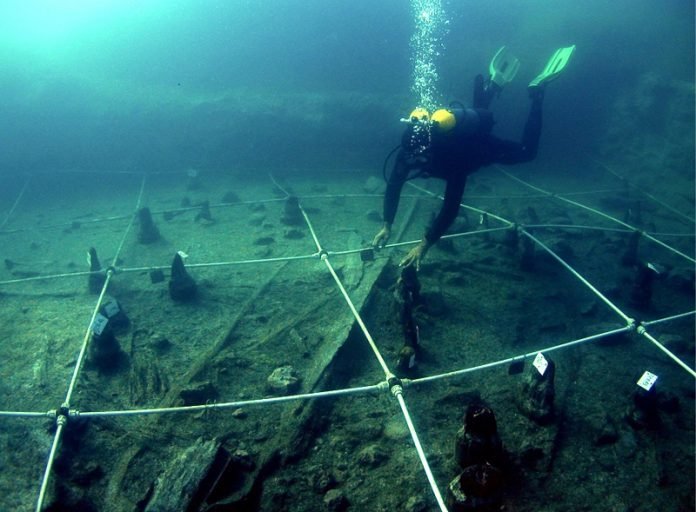
Over 7,000 years ago, the Mediterranean Sea was bustling with activity as people sailed across its waters in sophisticated boats, a recent study has discovered.
Published in PLOS ONE by Juan F. Gibaja and his team from the Spanish National Research Council, this research sheds light on the advanced nautical technology of the Neolithic era.
The Mediterranean region, a cradle of ancient civilizations, was a hub of travel and trade.
Evidence shows that during the Neolithic period, communities were not just settled along the coasts and islands but were actively navigating the sea.
The new findings come from the Neolithic village of La Marmotta, located near Rome, Italy, where archaeologists have unearthed five ancient canoes.
These canoes, carved from hollowed-out tree trunks and dating back to between 5700 and 5100 BC, showcase remarkable craftsmanship.
The use of four different types of wood in their construction sets them apart from other discoveries. Even more fascinating is the discovery of advanced building techniques, such as the addition of transverse reinforcements to strengthen the boats.
Among the artifacts found with the canoes were three T-shaped wooden objects, each featuring a series of holes.
Researchers believe these were used to secure ropes for sails or other maritime elements, suggesting these boats were not just for coastal sailing but could handle open sea voyages.
This theory is supported by the discovery of stone tools at the site, which are linked to distant islands.
The construction of these ancient vessels demonstrates a deep understanding of boat building, requiring organized and specialized labor.
The similarities between these ancient canoes and later nautical technologies indicate that significant sailing advancements were already happening in the early Neolithic period.
The team believes there could be more boats waiting to be discovered near La Marmotta, promising exciting prospects for future research.
This study not only highlights the Neolithic community’s incredible woodworking skills but also their ability to build complex sea vessels.
It’s a testament to the technological sophistication of early agricultural and pastoral societies, proving that our ancestors were skilled mariners capable of impressive feats of engineering.
Source: PLOS ONE.



